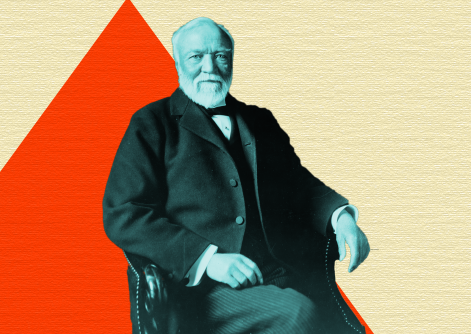The latest example comes from the hard-right American Thinker website:
it’s long overdue that Congress and the IRS exert far more control over all these foundations, more closely monitoring their activities and forcing them to rapidly spend down this mountain of assets on domestic charitable purposes (not political meddling).
Unfortunately, the essay’s author, Clarice Feldman, is confused about many things in the tax-exempt world and hasn’t thought through her argument, which adopts the flawed thinking of her political opponents.
Start with the use of “foundations” in the quotation above: Feldman clearly intends to cover not only conventional foundations like Ford and Annenberg, but also “universities” and nonprofits “organized around a particular activity – like providing abortions or supporting cancer research.”
This lumps together the two sides of the tax-exempt world, the money seekers and the money givers. But public charities like non-state universities, the American Cancer Society, and Planned Parenthood – which seek donations (even if a lucky few have endowments) – are quite different, legally and operationally, from private non-operating foundations – the legal term for conventional foundations like Ford and Rockefeller.
Nor should one forget that the vast majority of America’s tens of thousands of private foundations aren’t giants like Ford, but smallish family enterprises whose giving is local and uncontroversial. Similarly, America’s uncountable public charities are overwhelmingly not billion-dollar giants like Planned Parenthood. Even if you look just at churches, the majority have 50 or fewer attending members a week. In other words, America still enjoys an astonishing diversity of nonprofit life-forms that compete with each other, criticize each other, and draw citizens together in a rich stew of civic life.
It’s fine for Feldman to voice harsh criticisms of those charities and foundations whose work she disagrees with. I’ve attacked many of the same ones she does in her article. But calling for fundamental changes in the way government treats charities and foundations is something else.
It doesn’t seem to occur to Feldman that, for instance, letting the federales push around foundations and charities that are pro-abortion will also mean letting the feds push around those that support crisis pregnancy centers and adoption.
Feldman decries the way the federal Department of Health and Human Services hopes to force all employers – for- and nonprofit – to subsidize abortifacients, sterilization, and contraceptives, but that’s just the kind of intrusive regulation one should expect when the feds “exert more control” over civil society.
Likewise, Feldman meanders into gripes about the government’s prosecutions of Sen. Stevens and Conrad Black. Does she imagine that IRS bureaucrats, when “monitoring” and “forcing” nonprofits to spend money on projects of which the bureaucrats approve, would fail to commit similar abuses of power?
Worst of all, she repeatedly attacks her targets by stressing how much money they have and how little control and taxation government exercises upon it:
I have been watching over the years as non-profit foundations enormously have increased their assets and sway over the political and cultural life of America (essentially on our dime) with no real oversight or controls *** the immense fortune, untaxed, and outside of any of the normal controls on government or private funds *** we are talking about a cache of billions, if not trillions, of dollars out of government reach *** we desperately need [government] oversight of the trillions of dollars held by non-profit organizations.
This sounds painfully similar to President Obama attacking millionaires and billionaires who aren’t keen to pay more income tax. Is every tax-deductible enterprise in America really operating “on our dime”? That claim can only mean that every charitable donation actually belongs to the government, not to the citizen who makes the donation or the tax-exempt group that receives it. The latter apparently have the money only on sufferance from Congress and the IRS, who aren’t probing deeply enough into their affairs and forcing the money down avenues the government prefers.
This argument belongs in the mouth of left-of-center despisers of private wealth. It makes no sense from anyone who hopes to see government limited and civil society flourishing. Feldman compounds her errors when she adds,
My recollection is that the tax exemption for such foundations was created so that private individuals could meet public needs during the depression when government coffers were bare.
Where to begin? First, government expanded during the depression, both in its coffers and in the number of public needs it claimed the power to meddle in. Second, tax exemptions for charitable (and religious and educational) work date back centuries in Anglo-American law, which historically did not look upon such private endeavors as something to be tolerated only when government hadn’t procured enough tax money to handle the work by itself. Such exemptions were written into federal tax law beginning in the nineteenth century, and one historian adds that exemptions were “virtually universal among the American states” in the same century (see Chauncey Belknap’s extensive history, found at pp. 185-203 of this document; and the Philanthropy Roundtable's How Public is Private Philanthropy?).
Feldman sounds disturbingly like David Callahan, co-founder of the left-wing think tank Demos, in his recent New York Times attack on center-right donors like the Koch brothers. Callahan rails against “unfair use of public tax subsidies” and demands that the IRS severely limit the deductibility of donations to “nonprofits engaged in public advocacy.”
My two critiques of Callahan, alas, fit Feldman too. My conclusion remains:
If we continue to allow all charities, left and right, to chase after their own billionaires and to advocate for the public policies they believe in, our politics will continue to be loud and full of conflict. But that is just what our Founders intended.





